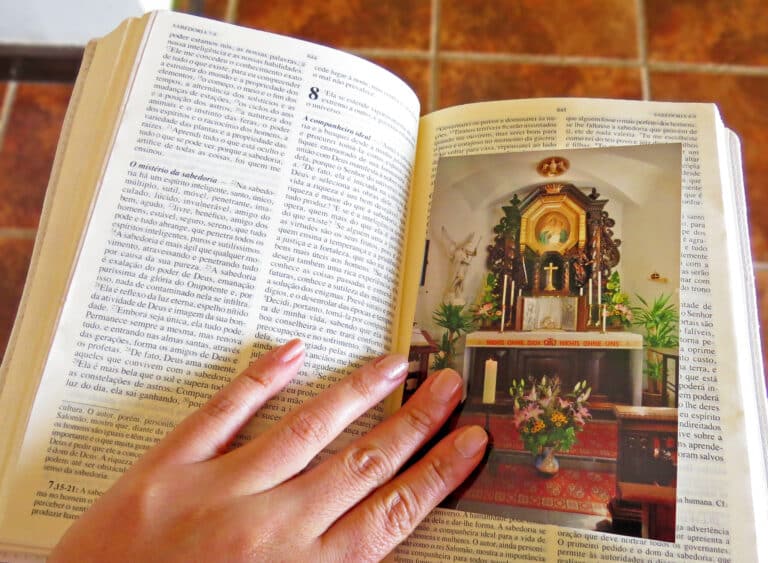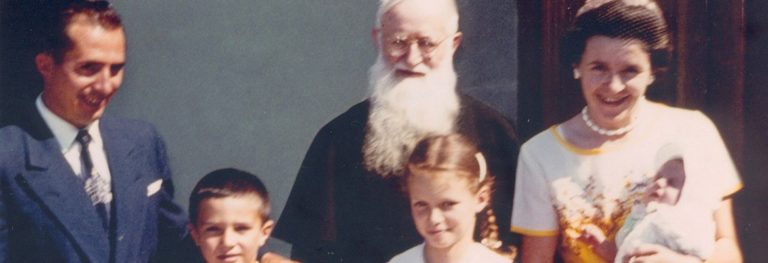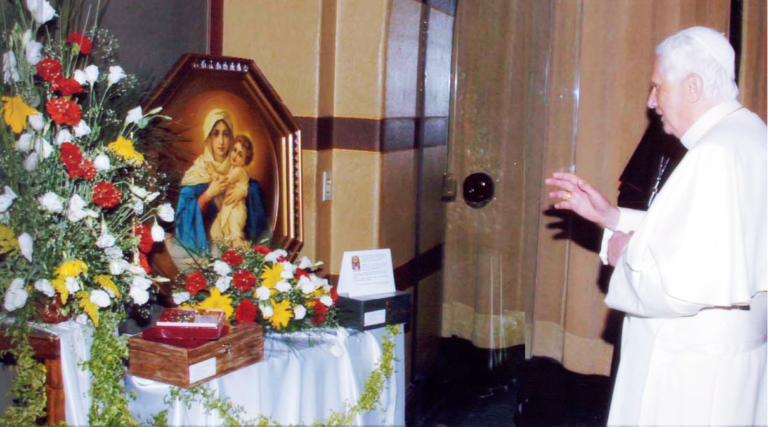The fourth day of the Pentecost Congress dawned bright and clear, and everyone was glad of the morning coffee served before the first event of the day. Everyone could sense that this day would be the decisive day in the congress: the last day before the finalization of the memorandum.
Youth Pentecost
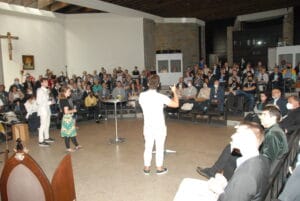
The first talk of the day came from three representatives of the youth at the congress. They and their companions had been working hard to prepare their own youth memorandum for the rest of the Schoenstatt family. There are many difficulties faced by the youth, but the biggest one is how disconnected they feel from the rest of the Schoenstatt family. They emphasized the need for representation in decision-making institutions, support from the whole family, and exposure and collaboration with the other branches of the family. They also pledged their strength and zeal to the family and the mission. The presentation was very well received, and many participants stated how delighted they were to see the maturity and zeal of the youth for their Schoenstatt family.
Schoenstatt’s Charism and the Church
Father Alexandre Ami Mello commented on the youth presentation at the beginning of his talk:
“We have to be proud of the youth. They just gave us an example of maturity, of how to treat deep themes but in such a simple way. They also have to live hard times, but they do it with real maturity because they have identified what comes in the future: looking at how to walk together with this family which they are proud of… The aim of the congress is to elaborate how God is moving Schoenstatt in the church and world today. If we do what the youth have proposed, half the work is done.”
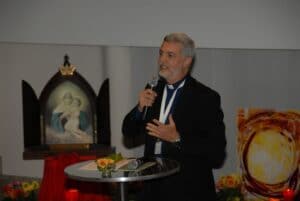
Father Awi Mello began his talk with this question: How can we help the world today as church, and what can we learn from today’s church and world? He stressed the importance of Schoenstatt being part of the Church, helping the world as Church. There is a danger of self-referentialism within movements like Schoenstatt, so he called us to remember that we are part of the Church. We must be proud of our family in Christ. “Without the Church, we do not exist, and only in the Church do we have the ‘right to exist.’” The words on Father Kentenich’s tomb sum up his stance on this point: Dilexit Ecclesiam.
Working as Church, we are called to live our charism as Church in the world. We are called to be living transparencies of God, drawing close to others through humble listening and open dialogue. The laity is called to be active in all areas of society and to transform their daily work through their everyday sanctity; our quiet, daily piety is a powerful tool for evangelization. Finally, he reintroduced the point of Synodality which has been very important in the discussions this week. Schoenstatt is called to be synodal within itself but also with the Church, being active in the life of the Church. Rooted in the gospel and tradition, Schoenstatt looks towards the future.
Update from Reflection team and Discussions
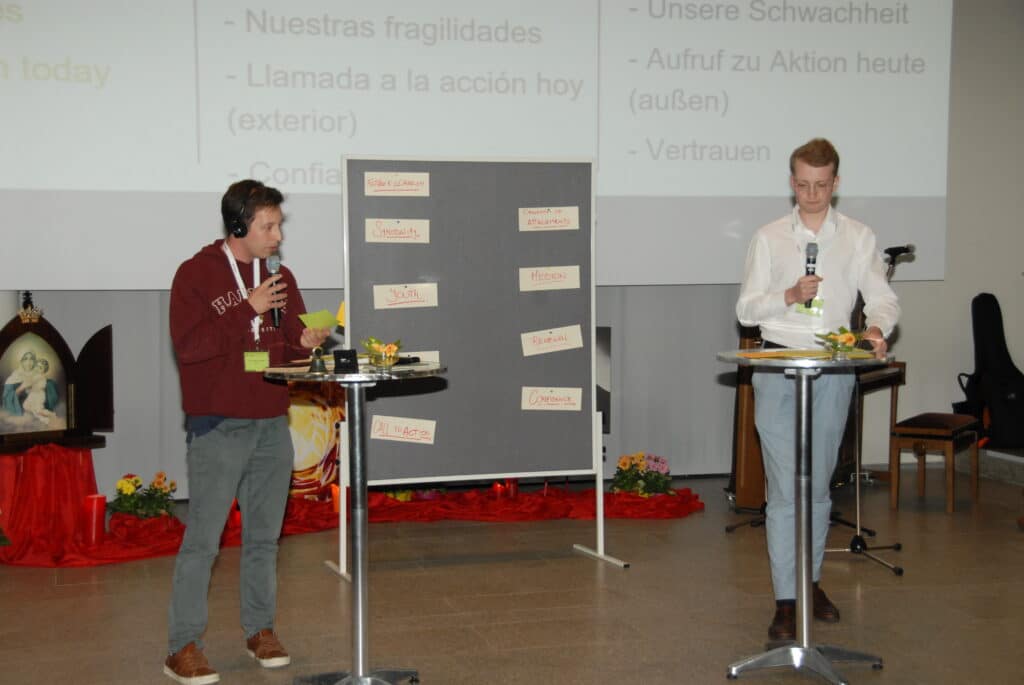
The morning continued with an update from the reflection team. They shared the main points they had synthesized from all of the discussions and suggestions they had collected throughout the congress. These points were:
- Father Kentenich and our charism
- Mission
- Renewal of the charism (internal)
- Call to action today (external)
- Youth as subjects (not objects)
- Synodality
- Organism of attachments
- Our frailties
- Confidence
After the speakers related these points and offered a brief explanation for each one, the participants broke off into their language groups to discuss the points. They wanted to come up with two words or phrases that summarized the most important aspects of all of the points. It was a very fruitful discussion, and the sixteen groups came back to the plenary discussion filled with ideas, hope, and enthusiasm.
Educated and Sent Out
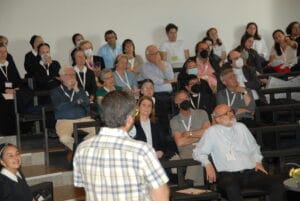
After lunch, there was a long break for coffee and discussions within countries and regions. There were many talks and discussions throughout the week, many ideas to process and many testimonies from different parts of the world. Each group wanted to formulate some strategies for implementing what they had learned here. America and Canada decided that they wanted to make a video about the youth’s mini Pentecost Congress and about the memorandum when it was finalized. This plan was suggested to the whole congress as a potential international idea.
Relaxing River Rhine
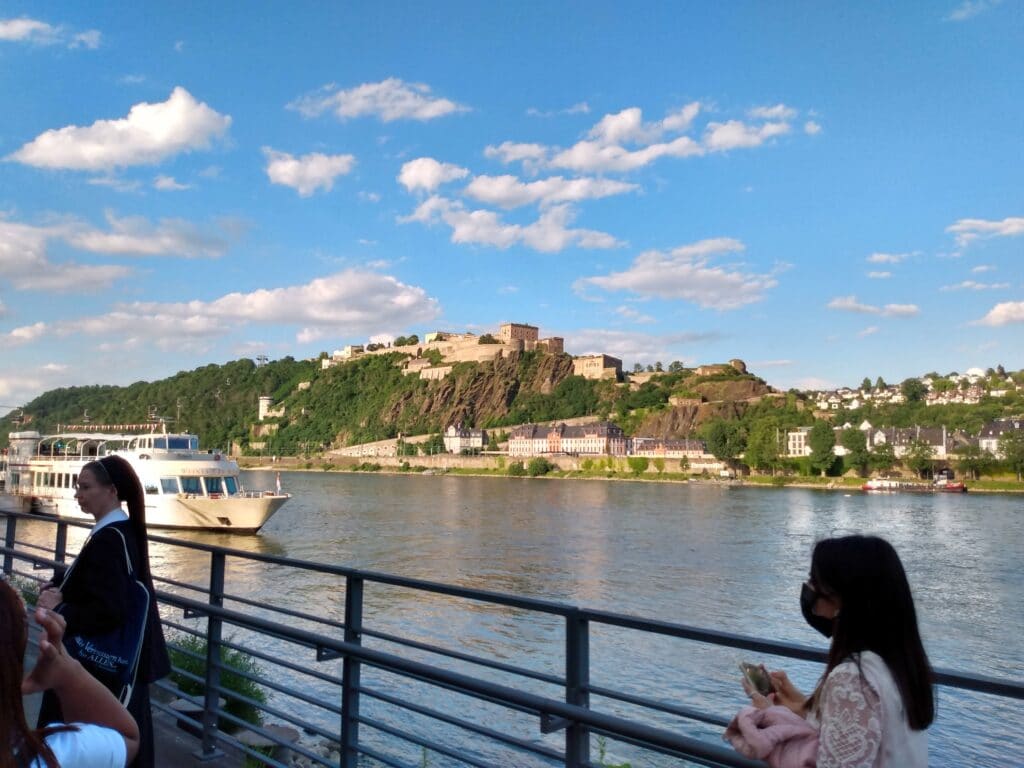
The evening held a wonderful surprise: a boat trip on the Rhine river. It was a time for relaxation and community. The river was beautiful in the evening light, and there were historic buildings to look at on both banks. Everyone enjoyed the company, the food, and the music provided by the music team and the youth from Central and South America.
Inspirations from the Day
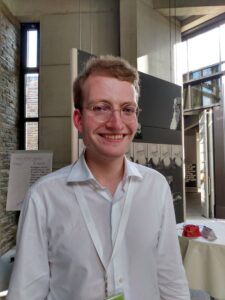
Tobias Zöhrer, from the youth in Austria, said that he could really feel that the Holy Spirit was present and speaking to every member of the congress. There was a deep connection between all of the participants like the congress was a family meeting; we felt like relatives coming together from all over the world. Tobias also enjoyed the discussions throughout the congress but particularly with the international youth. When the youth stayed up until the early morning hours before their presentation this morning, he said that they were able to formulate and complete the proposals because of our strong connections with each other. “We have the same goals.”
What particularly stood out to him from the day’s discussions was that the central point of our Schoenstatt charism is the Covenant of Love. The Schoenstatt family is called to be humble, focusing on our values and living them out with love and the willingness to learn from others.
Tobias hopes that we continue to grow strong as an international community, and that communication among the international youth will be fostered and strengthened. He hopes to stay in contact with the youth he met here and to share ideas, concerns, and life with them. Unity and diversity were the strengths that made the congress so fruitful, and what connected everyone was the shared mission of the family. He hopes that open dialogue will continue and be strengthened throughout the whole Schoenstatt family.

